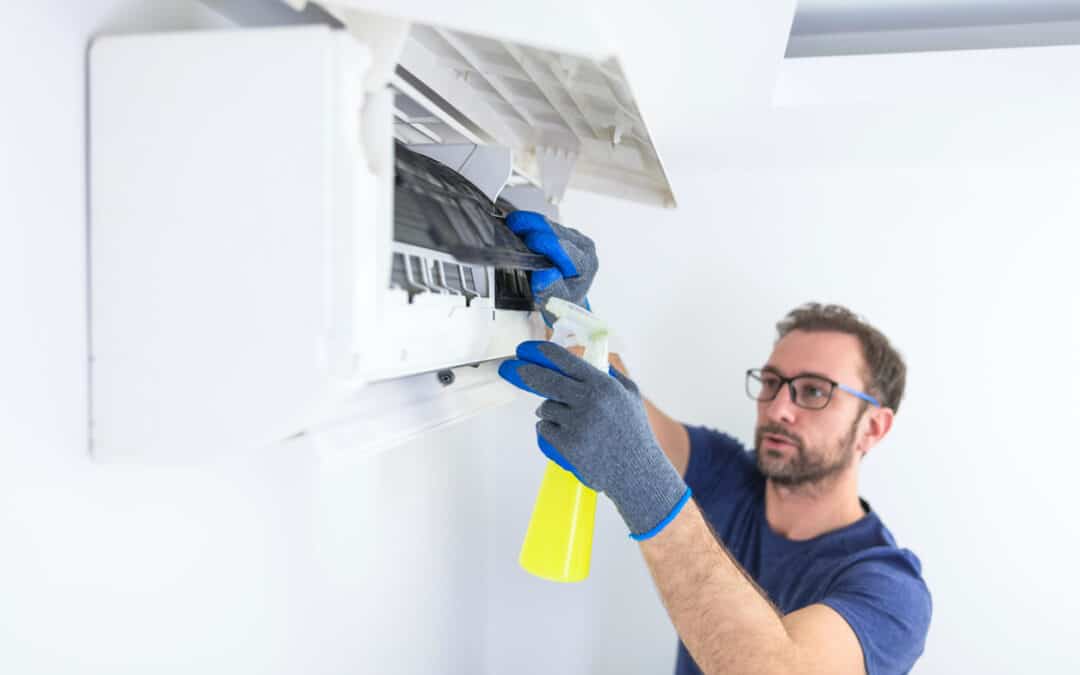As global warming is ongoing to transform our surroundings, its effects is being experienced throughout multiple sectors, including heating, air flow, and cooling, commonly known as heating, ventilation, and air conditioning. Discover More and shifting climate conditions are prompting homeowners and companies to reassess their HVAC units. Today, it's more crucial than ever to understand the way these systems work and the ways they can be optimized for enhanced efficiency and convenience in an adapting climate.

This article explores the complex relationship between climate change and HVAC technology. From the newest innovations in energy-efficient systems to the necessity of maintaining quality of indoor air, we will cover key information that anyone can use to enhance their heating system. Whether you are looking to lower your energy bills, boost your home’s coziness, or respond to the challenges posed by the weather patterns, this guide will provide important insights into making informed decisions about your HVAC setup.
Understanding HVAC Technologies
HVAC represents heating, ventilation, & air conditioning, together represent the technology employed to deliver indoor climate control. An HVAC unit is crucial in maintaining the desired temperature and air quality within residential and commercial buildings. It works by utilizing various parts such as furnaces, AC units, heat exchangers, and ventilation fans to manage the atmosphere. By comprehending https://writeablog.net/agerskovstokholm5320/this-connection-connecting-heating-ventilation-and-air-conditioning-with of each component, property owners can more thoroughly understand how these mechanisms work together to create a comfortable living or working environment.
The warmth aspect of HVAC systems typically depends on furnaces or heat exchangers to supply warmth during chillier months. Heating units combust fuel or require electricity to produce heat, while heat exchangers move heat from outside air or the earth into the building. On the flip side, air conditioning units serve to cool indoor spaces during warmer seasons. These systems operate by removing heat from the indoor air and releasing it to the exterior, often utilizing a refrigerant to aid the heat exchange process. A efficient HVAC system guarantees that the home stays comfortable all year long the year.
Air flow is another essential component of HVAC systems. It plays a vital role in ensuring indoor air quality by introducing fresh outdoor air and expelling stale indoor air. Proper ventilation can assist reduce indoor pollutants, allergens, and humidity levels, contributing to a healthier environment for people. Many current HVAC systems include advanced filtration and humidity control features, additionally enhancing overall air quality and comfort. By understanding these systems, users can make wise decisions about their maintenance and upgrades, particularly in the realm of changing climate conditions.
Heating, Ventilation, and Air Conditioning Servicing and Efficiency
Routine maintenance is important for ensuring the functionality and durability of your heating and cooling system. Simple tasks such as changing vent filters, cleaning ducts, and checking components can stop minor issues from growing into costly repairs. A thoroughly cared for system not only runs more effectively but also consumes less energy, which translates to lower energy bills. Arranging seasonal tune-ups can assist detect potential issues early and keep your system operating at peak performance.
Moreover, understanding the unique needs of your HVAC system can increase its effectiveness. Different units may require varying maintenance routines depending on their type, vintage, and usage. Keeping an eye on the thermostat settings is also crucial; setting it wisely can minimize strain on your system. By being attentive and conscientious of these factors, homeowners can noticeably prolong the life of their HVAC systems while enjoying a comfortable indoor environment.
Incorporating intelligent technologies for monitoring and controlling your heating and cooling can lead to even greater efficiency. New HVAC systems equipped with intelligent thermostats allow users to track energy usage trends, change temperatures remotely, and receive alerts on maintenance needs. By adopting new solutions, homeowners can maximize their systems, making sure that they not only meet their heating and cooling requirements but also contribute to comprehensive energy efficiency and cost savings.
Innovations in HVAC Technology
The HVAC sector is experiencing notable advancements driven by the need for energy-saving solutions and eco-friendliness. One of the most groundbreaking developments is the integration of smart technology into HVAC systems. Smart controls and sensors allow homeowners to monitor and control their heat and air conditioning systems from a distance, optimizing energy consumption and reducing expenses. These devices learn user preferences and can adjust settings on their own based on environmental changes, enhancing comfort while minimizing energy waste.
Another major development is the introduction of variable refrigerant flow systems. These systems are designed to provide precise temperature control and are more energy-efficient than traditional HVAC systems. By using advanced technology to adapt the refrigerant flow according to the heating and cooling demands of different spaces, these systems enhance energy savings and improve indoor comfort. They are particularly advantageous in commercial settings where varied temperature zones are often present.
Additionally, the emergence of eco-friendly HVAC solutions, such as ground-source heat pumps and solar-powered units, marks a noteworthy trend in the field. Geothermal technologies harness the stable temperature of the earth to provide heating and cooling, significantly reducing energy costs and environmental impact. Solar-powered HVAC units utilize solar energy to operate, making them an appealing option for environmentally aware consumers. These innovations not only support energy efficiency but also help mitigate the adverse effects of climate change, paving the way for a greener future in HVAC technology.
